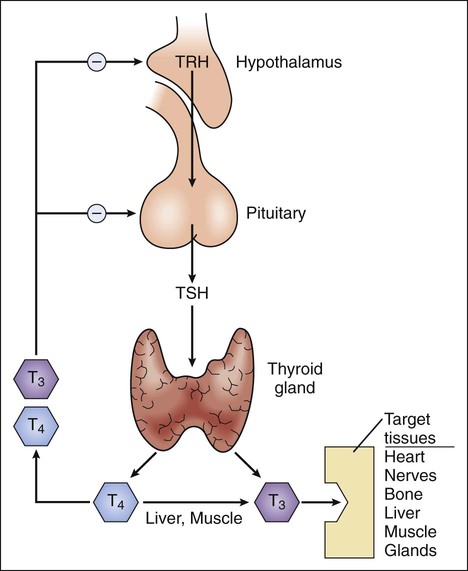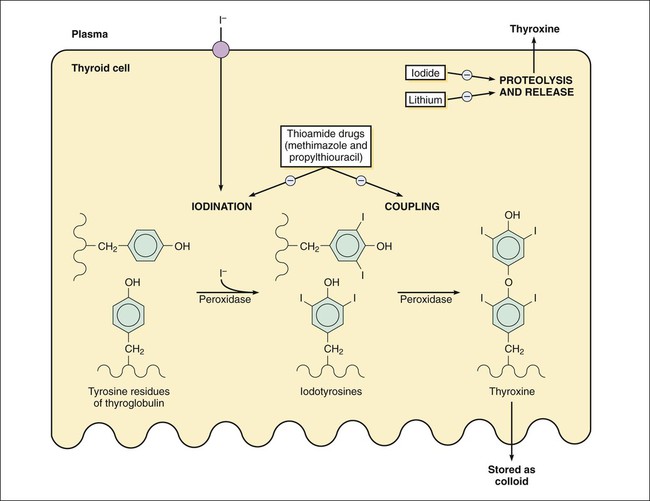As discussed in Chapter 31, the secretion of thyroid hormones is initiated by a hypothalamic hormone called thyrotropin-releasing hormone (TRH), which increases secretion of an anterior pituitary hormone called thyroid-stimulating hormone (TSH, or thyrotropin). TSH is the prime regulator of iodide uptake and thyroid hormone formation by the thyroid gland. It fulfills this role by inducing the expression of three genes involved in iodide uptake and hormone production: (1) the sodium/iodide symporter that transports iodide into the thyroid gland, (2) thyroglobulin, and (3) thyroperoxidase. The secretion of TRH and TSH is regulated, in turn, by feedback inhibition of their secretion by T4 and T3 (Fig. 32-1). Thyroid hormones are synthesized in a process that involves the uptake and organification of iodide and the subsequent coupling of iodotyrosine residues of thyroglobulin. These steps are depicted in Figure 32-2. Several types of drugs can induce thyroid disorders. Lithium inhibits the release of thyroid hormones by the thyroid gland (see Fig. 32-1) and can cause hypothyroidism by this mechanism. Amiodarone is an iodine-containing antiarrhythmic drug that can cause either hypothyroidism or hyperthyroidism through a variety of mechanisms that alter multiple thyroid functions. Synthetic levothyroxine is widely considered the drug of choice for thyroid hormone replacement in persons with hypothyroidism (Box 32-1). Thyroid hormones obtained from animal glands were used to treat thyroid disorders before the availability of synthetic hormones, but animal thyroid preparations are no longer recommended by endocrinologists because of their variable composition and stability and their potential to cause allergic reactions to animal proteins contained in these preparations.
Thyroid Drugs
Overview
Thyroid Hormone Secretion
Thyroid Disorders
Hypothyroidism
Thyroid Hormone Preparations
![]()
Stay updated, free articles. Join our Telegram channel

Full access? Get Clinical Tree


Basicmedical Key
Fastest Basicmedical Insight Engine


